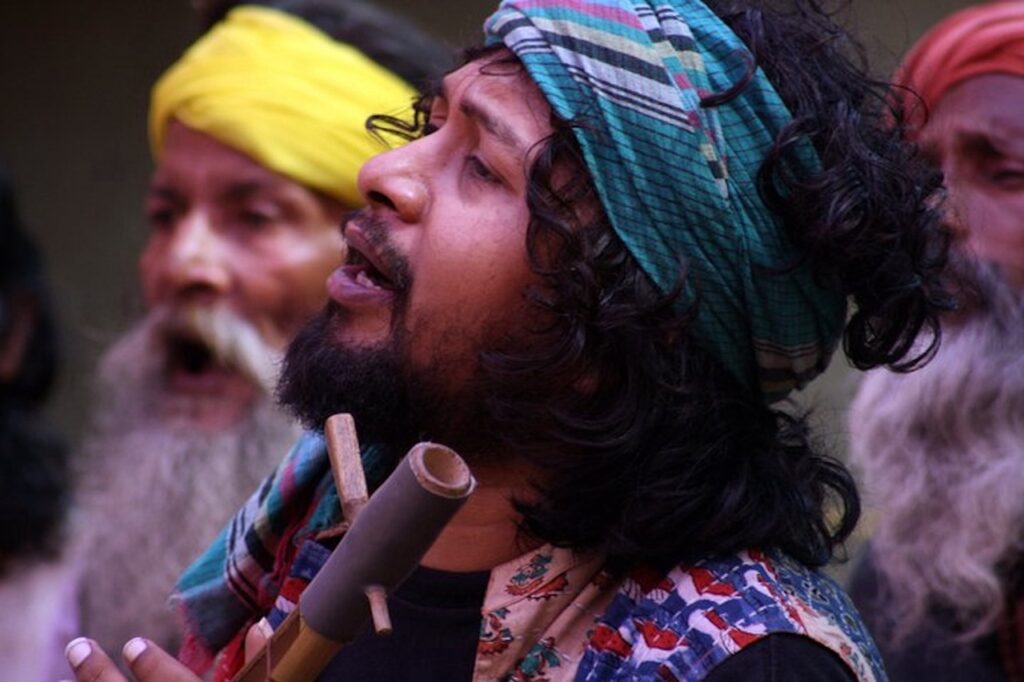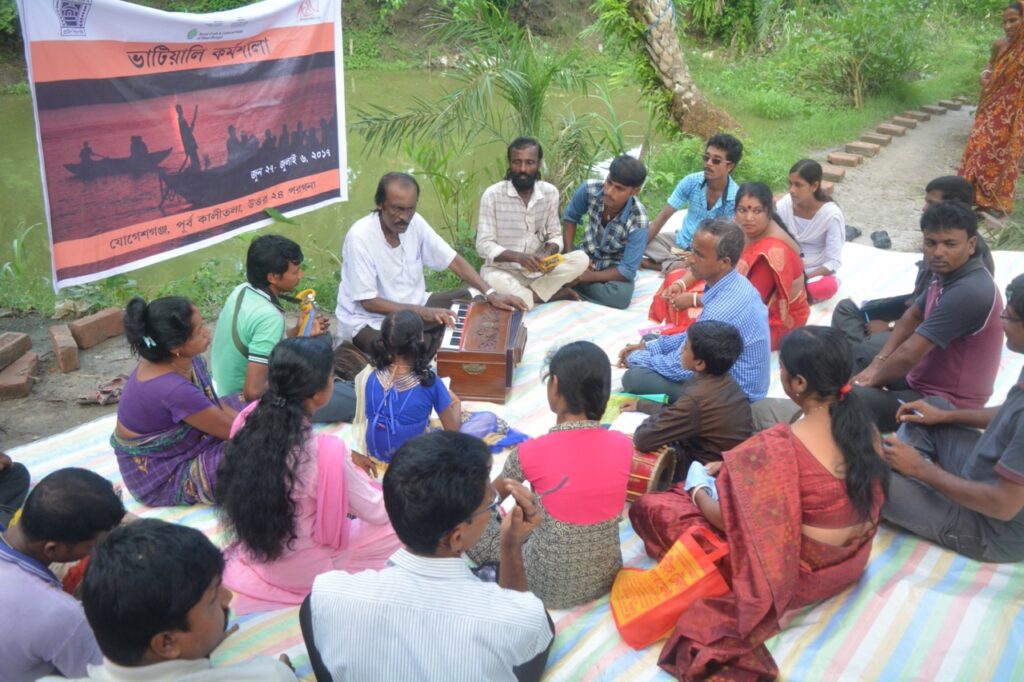Project Description
This research project explored: (1) the relationships between poverty and the sustainability of musical and other cultural expressions, and (2) the potential of music, especially “traditional” music, to contribute to poverty reduction efforts. It did so by advancing theory for understanding the dynamics of cultural sustainability in circumstances of poverty, and by generating new insights via case studies in Cambodia and India.

Photo: Saurav Moni performing at Pingla village, West Bengal, India, 2011, as part of the socioeconomic development activities of Banglanatak. Photo courtesy Saurav Moni.
Project Personnel and Beneficiaries
The first phase of the project (2015-2018) worked with youth musicians in Cambodia to gauge their perspectives on potential strategies for arts-based socioeconomic improvement in that country. The project sought to inform government and NGO discussions and decisions relating to culture, society, and economy. In addition to academic outputs, findings were shared directly with NGOs, communities of musicians, and through invited consultation with the Ministry of Culture and Fine Arts in Cambodia.
Building on Phase 1, the second phase of the project (2019-2025) sought new insights into the relationships between poverty and (traditional) cultural practices more generally, and of the potential for poverty alleviation and cultural sustainability efforts to work in support of each other.
This second phase involved collaboration with NGO Banglanatak, which works across India to understand, develop, and implement culture-based approaches to socioeconomic empowerment—especially of women, people living rurally, and people from minoritised or marginalised groups. In particular, this phase drew on Banglanatak’s project in West Bengal, “Rural Craft and Cultural Hubs,” as a case study.

Musician Bishnupada Sakar (centre) leads a community workshop as part of the activities of the Rural Craft and Cultural Hubs, 2017. Photo: Banglanatak.
Outcomes to Date
Outputs to date include articles in the International Journal of Cultural Policy (2022), Encyclopedia of the UN Sustainable Development Goals (2021), and SAGE Encyclopedia of Music and Culture (2019).
The project has also featured in the Oxford University Press Blog and Institute of Asia and Pacific Studies Dialogue Blog, and through keynotes, teaching engagements, and workshops in Australia, Portugal, Norway, Nigeria, Ghana, Germany, Thailand, Malaysia, Indonesia, Cambodia, USA, and Kazakstan. The Banglanatak case study, with local musician Saurav Moni as collaborator, is presented in the Oxford University Press book Sounding Good: Advancing Cultural Sustainability and Social Justice Through Music (Grant, 2025).
The project has informed decisions of the Cambodian Ministry of Culture and Fine Arts relating to strategies supporting youth participation and engagement with traditional music and the arts. It also advances theoretical and conceptual knowledge of the relationships between poverty and cultural sustainability. It is intended that these understandings will continue to inform the cultural sustainability and social efforts of culture-bearers and their communities, NGOs, policy-makers, cultural agencies (like UNESCO), and researchers.
Project Significance
The project expands understandings of the current and potential roles of intangible cultural practices (like music) in achieving SDG 1, “No Poverty”. It contributes new understandings of culture-based strategies for sustainable socioeconomic development in Cambodia, India, and elsewhere.
Related Links
Roles of Culture and Cultural Sustainability in Eliminating Poverty
Music, Culture, and Socioeconomic Development in West Bengal, India



